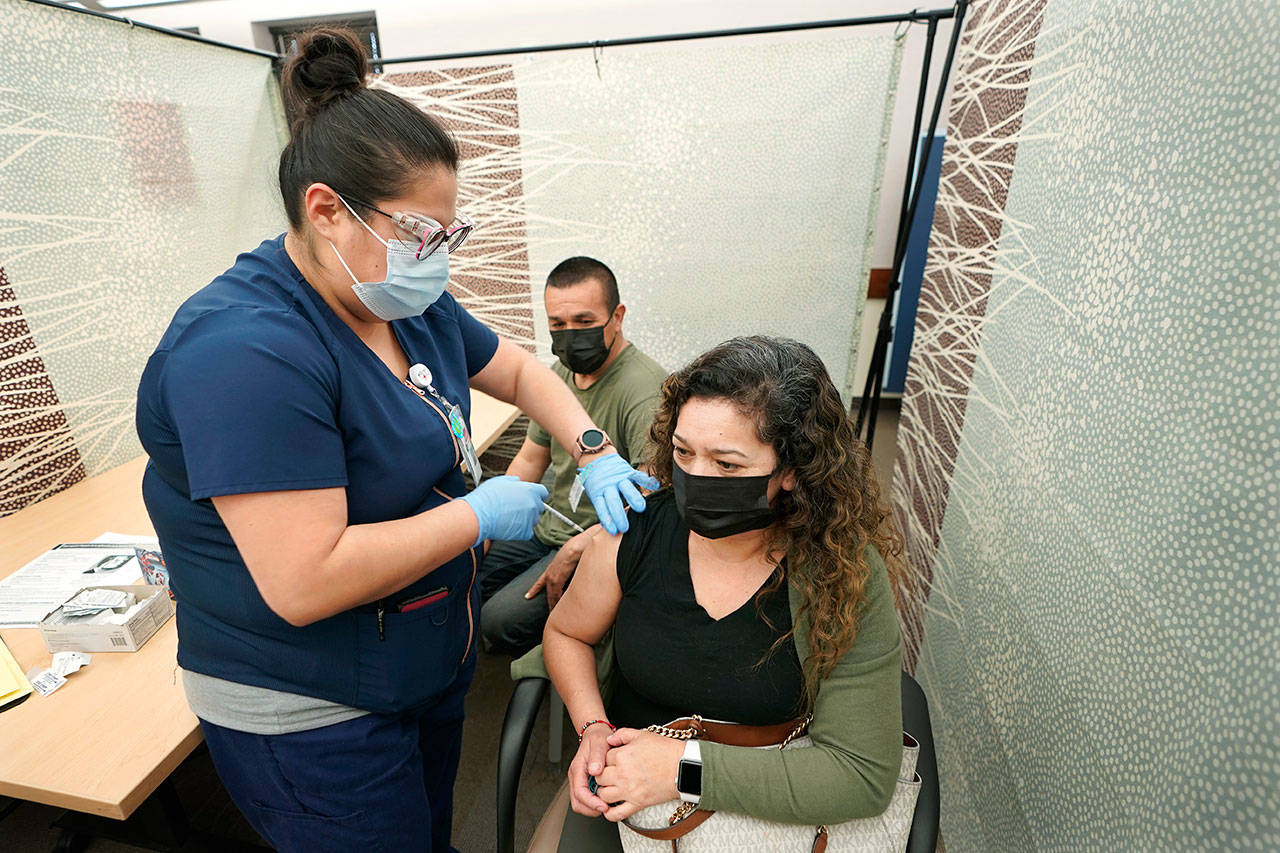By The Herald Editorial Board
Many long-distance runners can describe “hitting the wall” — somewhere around the 20th mile of a 26.2-mile marathon — where their energy reserves are depleted and it takes perseverance (and maybe some gummy bears) to push through the final few miles.
Covid-19 has been our marathon. It’s a course with an uncertain finish line, but many of us have already hit the wall — perhaps more than once — and are fatigued not just by the routines of mask wearing, social distancing and stepped-up hygiene; we are done, frankly, with the uncertainty of when we’ll be able to return to activities and a daily routine that the pandemic has limited if not denied us for more than a year.
The slowly improving spring weather also has roused the desire to — at last — be done with covid.
And just when steadily progressing vaccinations allowed us to catch a glimpse of the finish line ahead, the news of a recent uptick in coronavirus infections at the national, state and local levels has only added another layer of bricks to the wall.
Coronavirus infection rates continued their rise in the past week, jumping as much as 13 percent nationwide and 17 percent in Washington state, according to tallies by The Washington Post. Data reported by the Snohomish Health District shows, after several weeks of decline from the third and worst wave of infections, that infections have increased for the second consecutive week, rising from the recent low of 312 new cases during the second week of March to 499 cases, March 21-27.
Hopes for the pandemic’s end haven’t vanished all together; vaccinations — after early hiccups — are progressing. Nationwide about 16 percent of the population is fully vaccinated. That number is at 17 percent for the county, with more than 1 in 4 having received at least one dose of the two-dose vaccines. And the availability and access to vaccines continues to expand.
But that hope has been tempered by the arrival in the United States since January of at least three coronavirus variants — mutations of the original virus — that may be more contagious and possibly more deadly, the U.S. Centers for Disease Control and Prevention has warned. The virus’ ability to mutate over time makes the importance of suppressing infections all the more crucial; the more bodies the virus finds, the more opportunity it has to build its own offensive adaptations against our vaccines, our developed immunity and other defenses.
Our shared covid fatigue and the good news that comes in dribs and drabs may be conspiring against us, lulling us to let down our guard and creating an opening for a feared fourth wave of infections.
Having hit the wall, we now have to find the resolve to finish the marathon.
That means — and you knew this was coming — wear your mask, keep your distance and get the vaccine when you have the opportunity.
Especially for those fortunate to be two weeks past a full vaccination, the temptation is to consider yourself safe and no threat to others.
True, the CDC now advises that those who are fully vaccinated can gather indoors with others who are also fully vaccinated without wearing masks; they can also gather indoors with unvaccinated people — relatives who live together, for example — without masks.
But keep the masks handy, the CDC still recommends.
What hasn’t changed, even for those fully vaccinated, are the guidelines to continue wearing masks in public, keeping a distance of six feet, avoiding crowds and poorly ventilated spaces, and staying vigilant for symptoms of covid-19.
The nagging political battles over the measures — especially masks — are of no help. The message encouraging wearing of masks has been dulled recently by public officials, notably Sen. Rand Paul, R-Ky., who has repeatedly clashed with Dr. Anthony Fauci, President Biden’s chief medical adviser on covid.
During a recent hearing, Paul, who previously has been infected with covid and refuses to wear a mask, criticized Fauci for his recommendation that those who have been vaccinated or have previously had covid should continue to wear masks in public. “Isn’t it just theater?” Paul asked.
“Let me just state for the record that masks are not theater,” Fauci replied. “Masks are protective.”
While the risk is low, those who have been vaccinated can be re-infected, and can still pass on the virus if they have been in contact recently with those who are infectious.
The CDC says explicitly: “We’re still learning how well COVID-19 vaccines keep people from spreading the disease.”
There’s also an issue of solidarity here. Recall the message often repeated since early in the pandemic: We are all in this together.
Until we reach a level of vaccination that assures herd immunity, wearing a mask should signal our commitment to our neighbors and their health. That’s not theater; that’s encouragement.
And during a marathon, every runner can use some of that.
Talk to us
> Give us your news tips.
> Send us a letter to the editor.
> More Herald contact information.

























